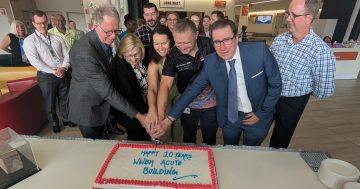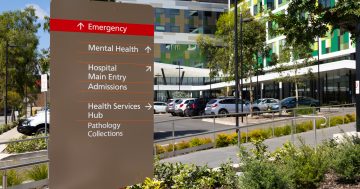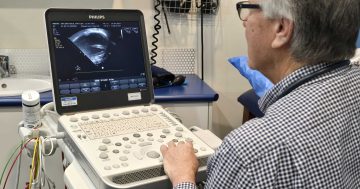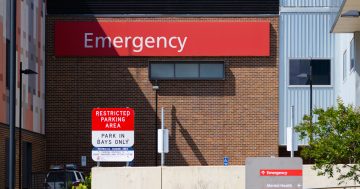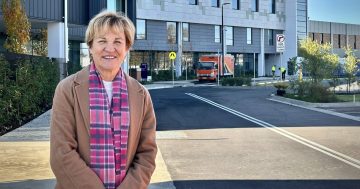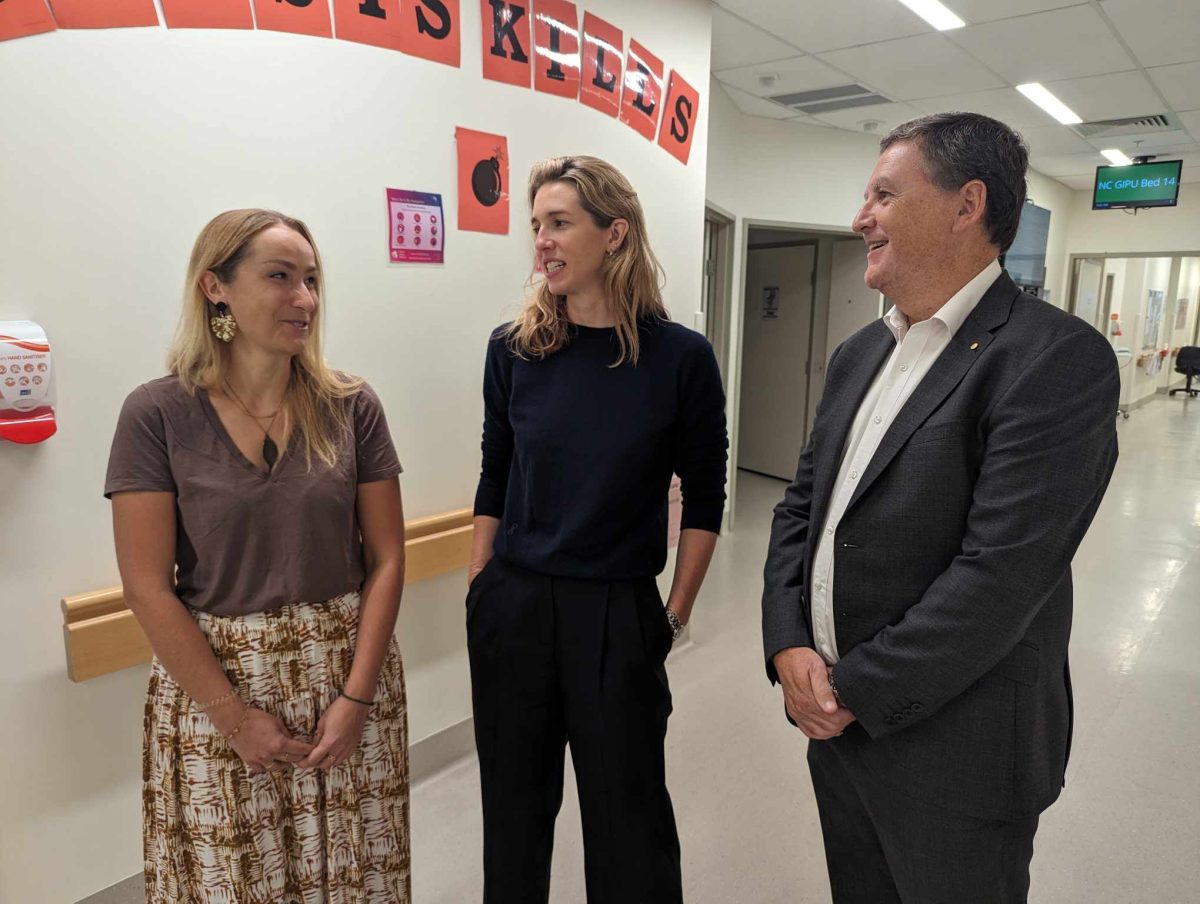
Dr Christina Nitz (left) will be visiting the Wagga Base Hospital regularly to provide face-to-face consultations with MS patients. Photo: Jarryd Rowley.
Riverina Multiple Sclerosis patients will soon be able to have regular face-to-face appointments with a neurologist without needing to travel to Sydney or Canberra.
Dr Christina Nitz, who is completing a fellowship in Neuroimmunology at St Vincent’s Hospital in Sydney, has taken up a position that will see her travel to Wagga Base Hospital regularly, allowing the region’s MS patients to access vital in-person consultations.
The previous model for specialty MS care in the Riverina required patients to utilise telehealth appointments. Dr Nitz is now expected to spend several days in Wagga every few weeks in hopes of limiting the number of patients who have to rely on telehealth.
Dr Nitz said the new service provided an improved model of care, with patients able to access timely and personalised specialist care, regardless of where they live.
“I have always been very passionate about Neuroimmunology and I would really love to see an increase in specialty services in regional areas,” Dr Nitz said
“I look forward to my regular visits, and the opportunity to make a positive impact on the lives of patients in the Murrumbidgee, as we know there are many highly effective treatments now available for MS and other neurological conditions.
“I arrived in Wagga for the first time earlier this week and I’ve absolutely loved it. The hospital (Wagga Base Hospital) is a similar size to what I’m used to in Tasmania, where I worked previously.
“Everyone that I’ve met so far has been incredibly welcoming and very nice. It’s obvious that there is a need to increase specialty services and the people here have been very thankful to us for providing that service.”
Wagga Wagga Base Hospital Neurologist Professor Martin Jude welcomed Dr Nitz, who has been in Wagga to meet with local medical professionals and view the facilities at Wagga Wagga Base Hospital.
“More than 33,000 people in Australia live with MS, and around 450 of them live right here in the Murrumbidgee,” Professor Jude said.
“People living with MS can experience a range of impacts on their quality of life including pain, independent living, mental health and relationships. Having to travel to access specialist care is one stressor that we hope to reduce for these patients.
“We also look forward to the learning and networking opportunities that Dr Nitz will bring to our multidisciplinary team.”







